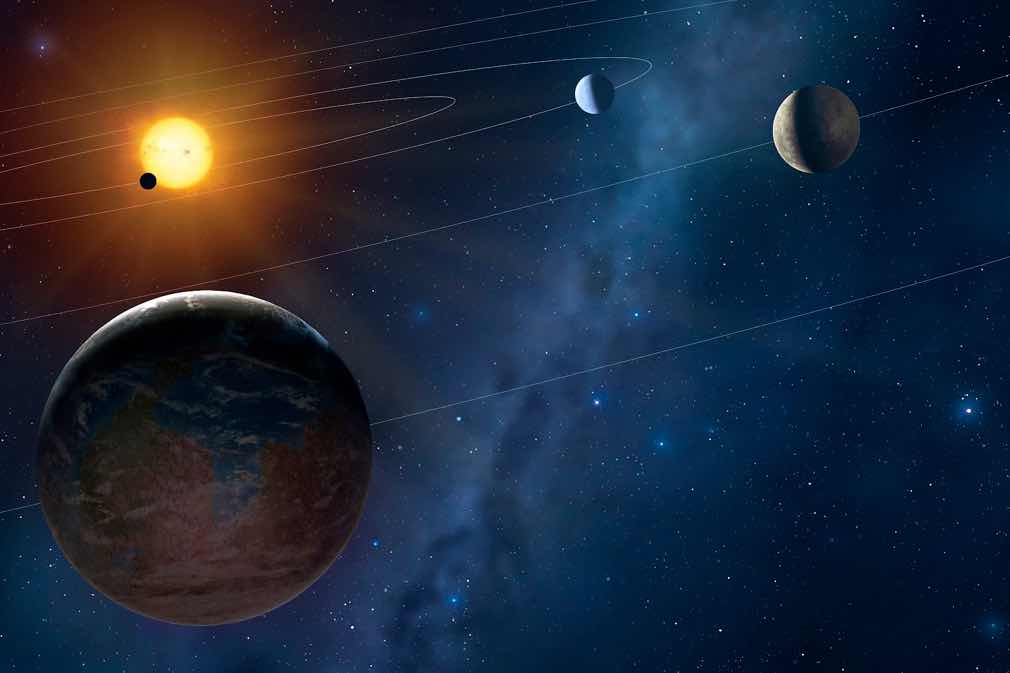Liquid water on Pluto? Gases trapped in a layer of ice could be what keeps an underground ocean from freezing, report researchers

(Natural News) Scientists believe that a layer of gassy material on Pluto’s surface is stopping an ocean underneath it from freezing over. New models of Pluto’s evolution suggest that this gassy layer is helping to insulate this body of water. If their calculations are correct, this means that these gases, if present in other planets, can potentially harbor life-supporting bodies of liquid water.
Images taken by NASA’s New Horizons probe showed the Sputnik Planitia region near the dwarf planet’s equator back in 2015. Hints of an underground ocean come from readings that showed mountain ranges, glaciers, icy volcanoes and fissures on Pluto’s surface, suggesting that something is ripping its crust apart, such as a freezing ocean underneath.
However, Pluto’s crust in this region is thinner in some areas than others, which scientists believe would only make sense if it was frozen hard. Otherwise, the crust would be spread out more evenly. This uneven crust has puzzled scientists since the New Horizons probe transmitted its pictures. Now, a team of Japanese scientists may have found the answer. (Related: Water on Mars: The Red Planet is dumping its limited water supply into space, says researchers.)
A layer of insulation may be responsible
In a study published in the journal Nature Geoscience , the team of Japanese researchers believe that a layer of gas may be serving as insulation for liquid trapped underneath it, keeping it from freezing over in Pluto’s extremely cold conditions.
The team speculates that this layer of insulation may be made up of gas hydrates known as clathrate hydrates, which are produced when gases get trapped within a layer of molecular water. This creates crystalline solids that are highly viscous and have low thermal conductivity, making them a perfect insulating agent for subsurface oceans.
Enjoy up to 51% OFF your favorite workout supplements, functional snacks, beverages and more at the Health Ranger Store's Black Friday and Cyber Monday Superfoods and Supplements Flash Sale event. This limited-time sale is going on NOW and runs through Saturday at midnight... only while supplies last. Learn more here.
To test out their theory, the researchers conducted computer simulations covering a timescale of 4.6 billion years, right around the time the solar system began to form.
These simulations showed the evolution of Pluto’s interior; the time it might take for an ocean of the magnitude theorized to freeze over; and for the layer of frozen crust covering it to be as thick as the New Horizons probe showed. They ran two simulations, one with the gas hydrates and one without, to see if their theory holds.
The simulations showed that the gas hydrates were necessary for keeping the subsurface ocean from freezing over. The simulation they ran without the hydrates showed the ocean completely freezing over hundreds of millions of years before the present time. In the simulation with the gas hydrates, it remained mostly in its liquid form.
The insulation also acted the other way around, as the gas hydrates also helped keep Pluto’s surface cold enough for the crust above the ocean to freeze with different layers of thickness.
Astronomical implications
Further research needs to be done, but if the theories of the researchers pan out, the implications are enormous. It would mean that similar insulating layers of gas hydrates may be keeping bodies of water from freezing over in places where they would have done so long ago, such as in several icy moons and other celestial objects within the solar system.
Bodies of water remaining liquid also means that the chances of them harboring extraterrestrial microbial life have increased significantly.
The leader of the research team, Shunichi Kamato of Hokkaido University, said in a press release that “this could mean there are more oceans in the universe than previously thought, making the existence of extraterrestrial life more plausible.”
Sources include:


